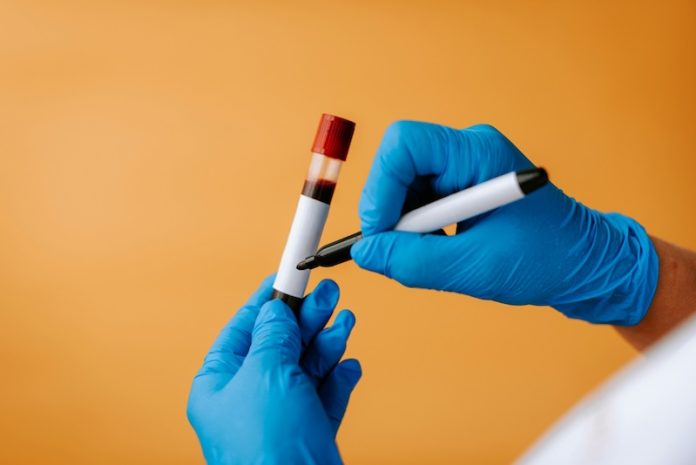
Scientists from Boston University and other institutions have made an exciting discovery: a blood test that could help detect dementia long before symptoms appear.
This breakthrough could be a game-changer for diagnosing and possibly preventing Alzheimer’s disease and other forms of dementia.
The study focused on a blood protein called P-tau181, which is linked to brain cell damage. Researchers worked with 52 healthy adults from the Framingham Heart Study, a long-running health research project in the United States.
These participants had no memory problems or other signs of cognitive decline when their blood samples were collected. Their cognitive abilities were also tested, and all results came back normal.
Years later—on average, about seven years after the blood samples were taken—the researchers conducted brain scans to look for ß-amyloid. This is a protein that builds up in the brains of people with Alzheimer’s disease, forming sticky plaques that interfere with normal brain function.
They found that individuals with higher levels of P-tau181 in their blood were more likely to have ß-amyloid in their brains, even though they hadn’t shown any outward signs of dementia.
What makes this discovery particularly important is that P-tau181 was more accurate than two other markers in predicting the presence of ß-amyloid.
This suggests that a simple blood test could one day serve as a powerful tool to identify people who are at high risk of developing dementia—years before memory problems or behavioral changes become noticeable.
Currently, diagnosing Alzheimer’s and other forms of dementia often involves expensive brain scans or invasive procedures like spinal taps to collect cerebrospinal fluid. These methods are not practical for routine testing or large-scale screenings.
A blood test, however, would be much simpler, less costly, and more accessible for regular check-ups or widespread health programs.
Such a test could have major benefits beyond early detection. It might also help identify people who could participate in clinical trials for new dementia treatments.
Researchers are particularly interested in targeting individuals who are in the earliest stages of the disease, as there is still time to potentially slow or stop its progression.
By focusing on people with elevated P-tau181 levels, scientists could refine their studies and develop therapies more effectively.
The ability to catch Alzheimer’s and similar diseases early could also pave the way for better prevention strategies.
For instance, lifestyle changes such as improving diet, increasing physical activity, or addressing medical conditions like high blood pressure and diabetes could reduce the risk of further brain damage.
Early detection might also allow doctors to explore new drugs that can halt or reverse the buildup of ß-amyloid and other harmful proteins.
Although this research is promising, it’s important to note that more studies are needed before such a blood test becomes widely available. L
arger trials will help confirm the reliability of P-tau181 as a biomarker and determine how well it works across different populations. Still, this discovery marks a big step forward in the fight against dementia.
By making it easier to identify people at risk early, this research offers hope for slowing down a disease that affects millions of families worldwide.
A simple blood test could one day transform the way we understand, treat, and prevent dementia, giving people more time to enjoy their lives and memories.
If you care about brain health, please read studies about how the Mediterranean diet could protect your brain health, and blueberry supplements may prevent cognitive decline.
For more information about brain health, please see recent studies about antioxidants that could help reduce dementia risk, and Coconut oil could help improve cognitive function in Alzheimer’s.
Copyright © 2024 Knowridge Science Report. All rights reserved.



